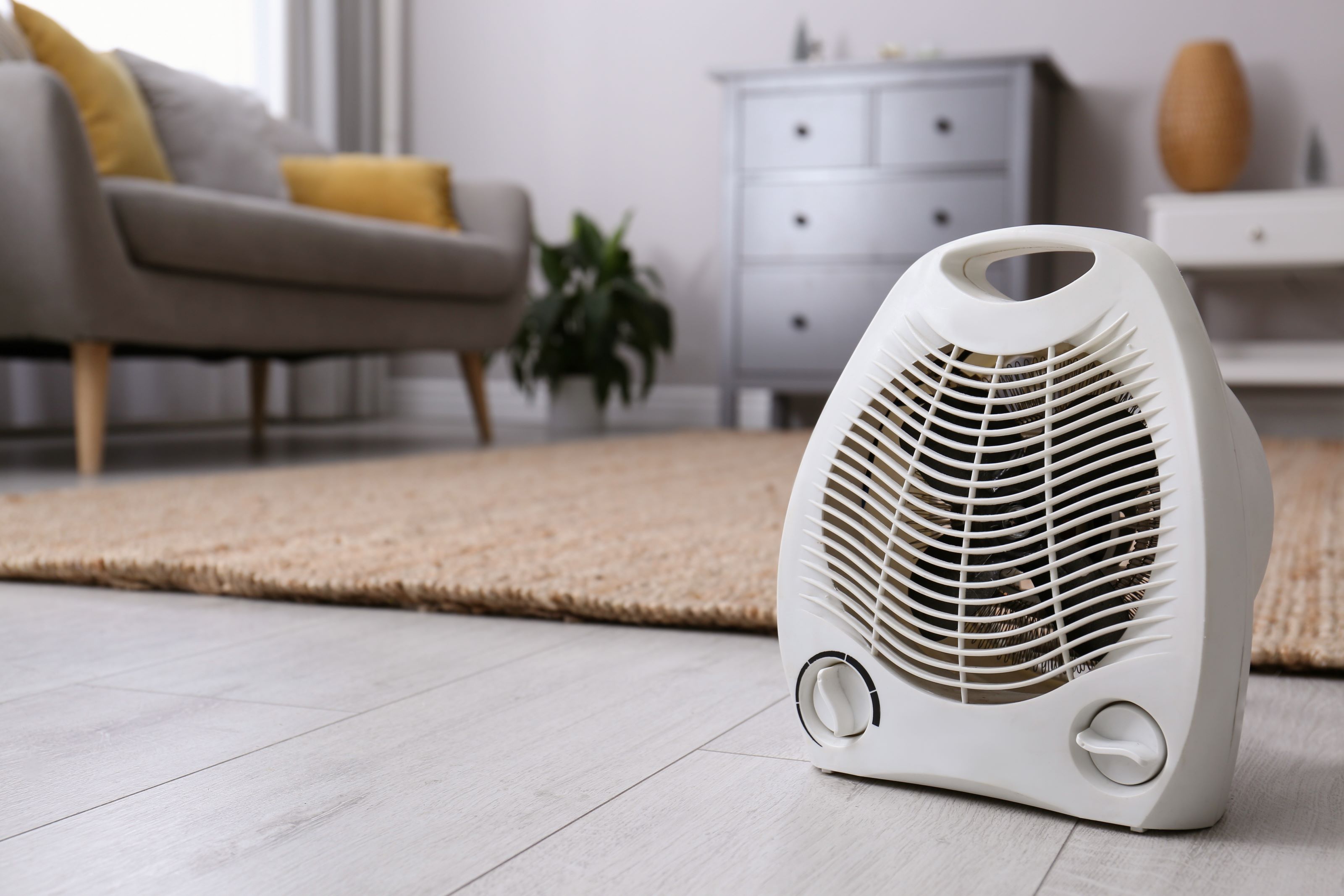How much does it cost to run a fan heater per hour? How to calculate usage costs
Fan heaters can be an effective short-term option to heat smaller spaces. Find out how much your one costs to run

British homeowners seeking alternatives to central heating might be wondering how much does it cost to run a fan heater amid lingering fears over energy costs.
Heaters that don’t form part of a property’s inbuilt central heating system are often, perhaps unfairly, maligned as hugely energy inefficient, but the truth is the cost depends on when, where, and how you use them.
Here's everything you need to know about how much a fan heater costs to run per hour, including what they are and how their running costs compare to switching on your central heating. And if you need more guidance on keeping bills down, take a look at more of our energy saving tips.
What is a fan heater?
A fan heater is a home heating option that consists of a fan that blows air through a heating element, usually a coil of wire, which converts electricity into heat. This circulates warm air throughout the area in which it is installed. There are many different forms of fan heaters to suit varying needs.
Fan heaters are usually portable meaning you can move it to any space that needs heating as long as you have a power source. They are different to other electric heaters, such as oil-filled radiators (read more about these in our piece on how much do oil-filled radiators cost to run), which uses electricity to heat oil with an element inside a reservoir, or storage heaters, which accumulate heat in water or bricks and release it when needed.
Fan heaters can be moved between rooms and some are so small they can be placed on a desktop. They can also be installed in the wall or ceiling of a room.
How much does it cost to run a fan heater per hour?
This all depends on the wattage of your fan heater but as a guide, a 500 watt heater like this portable mini one for £25.99 on Amazon would cost 17p per hour, while a more powerful 2000 watt heater, like this £23.27 StayWarm fan heater, would cost 68p per hour. This is based on electricity costing 34p per kWh, which is the current standard average from October 2022. Obviously the higher the wattage however, the more heat it will pump out.
Do bear in mind that the electricity cost per kWh is due to increase after Chancellor Jeremy Hunt announced energy price rises in the Autumn Statement and increasing the energy price guarantee from £2,500 a year to £3,000 from April 2023.
To calculate exactly how much a fan heater will cost you per hour:
For example, a 500W fan heater will cost 17p to run each hour under current 34p per kWh rates (500/1000 = 0.5, then 0.5 x 0.34 = 0.17).
A 2000W fan heater meanwhile: 2000/1000 = 2, then 2 x 0.34 = 0.68
In terms of how much it would cost your fan heater to heat a room, this would depend on a variety of factors. These are:
- the type of home you live in and level of insulation in the property
- the size of room where it will be used
- your energy provider
- the time it will be used (off peak etc)
- How cold it is outside (more demand for heat)
Is it cheaper to run a fan heater than central heating?
If comparing the cost of central heating per hour versus how much a typical fan heater (2000W) costs to run per hour, it is likely to be cheaper to run your central heating rather than relying on fan heaters to heat your entire home.
Central heating costs per hour are estimated at 12p per hour for gas central heating and 13p an hour for a heat pump, according to heating expert Martyn Bridges, who is director of technical services at Worcester Bosch. This estimate is based on a three-bedroom house with two to three people living in it. Meanwhile a typical 2000W fan heater would cost 68p per hour per fan heater.
Therefore, having a fan heater in every room would be excessively expensive compared to central heating, but where they come into their own is adaptability. Portable heater can be moved to different rooms and used depending on the circumstances, including giving the space a short, quick blast of heat.
For example, a home worker might save cash if they turn off the central heating and use a fan heater to periodically heat their home office throughout the day while the rest of the house isn't in use and needing heat.
Some fan heaters, like this £64.99 tower fan heater on Amazon, now come with thermostats and controls that can be tweaked to keep a space at a set desired temperature. They can also be used to ‘top up’ the heat in larger rooms, and are also useful to heat external buildings like garages or sheds if you are spending time doing DIY or working on a car.
It's worth also bearing in mind that calculating the cheapest way to heat a room again depends on a number of variables, such as the size of your home and how energy-efficient it is, your heating requirements, and your energy provider.
What are the disadvantages of a fan heater?
Fan heaters can consume a lot of electricity in a short space of time, and are therefore best used in smaller and well insulated rooms.
Depending on the model you get and what you spend, they can be a bit noisy – irritating if you’re trying to work.
Fan heaters can quickly heat a space, but the area will cool quickly once it’s turned off. Oil-filled radiators are often preferred for this reason as they hold residual heat in better due to the liquid cooling inside. It’s usually best to turn them off when leaving the room as well to remove any fire risk.
Get the Homebuilding & Renovating Newsletter
Bring your dream home to life with expert advice, how to guides and design inspiration. Sign up for our newsletter and get two free tickets to a Homebuilding & Renovating Show near you.
Sam is based in Coventry and has been a news reporter for nearly 20 years. His work has featured in the Mirror, The Sun, MailOnline, the Independent, and news outlets throughout the world. As a copywriter, he has written for clients as diverse as Saint-Gobain, Michelin, Halfords Autocentre, Great British Heating, and Irwin Industrial Tools. During the pandemic, he converted a van into a mini-camper and is currently planning to convert his shed into an office and Star Wars shrine.

